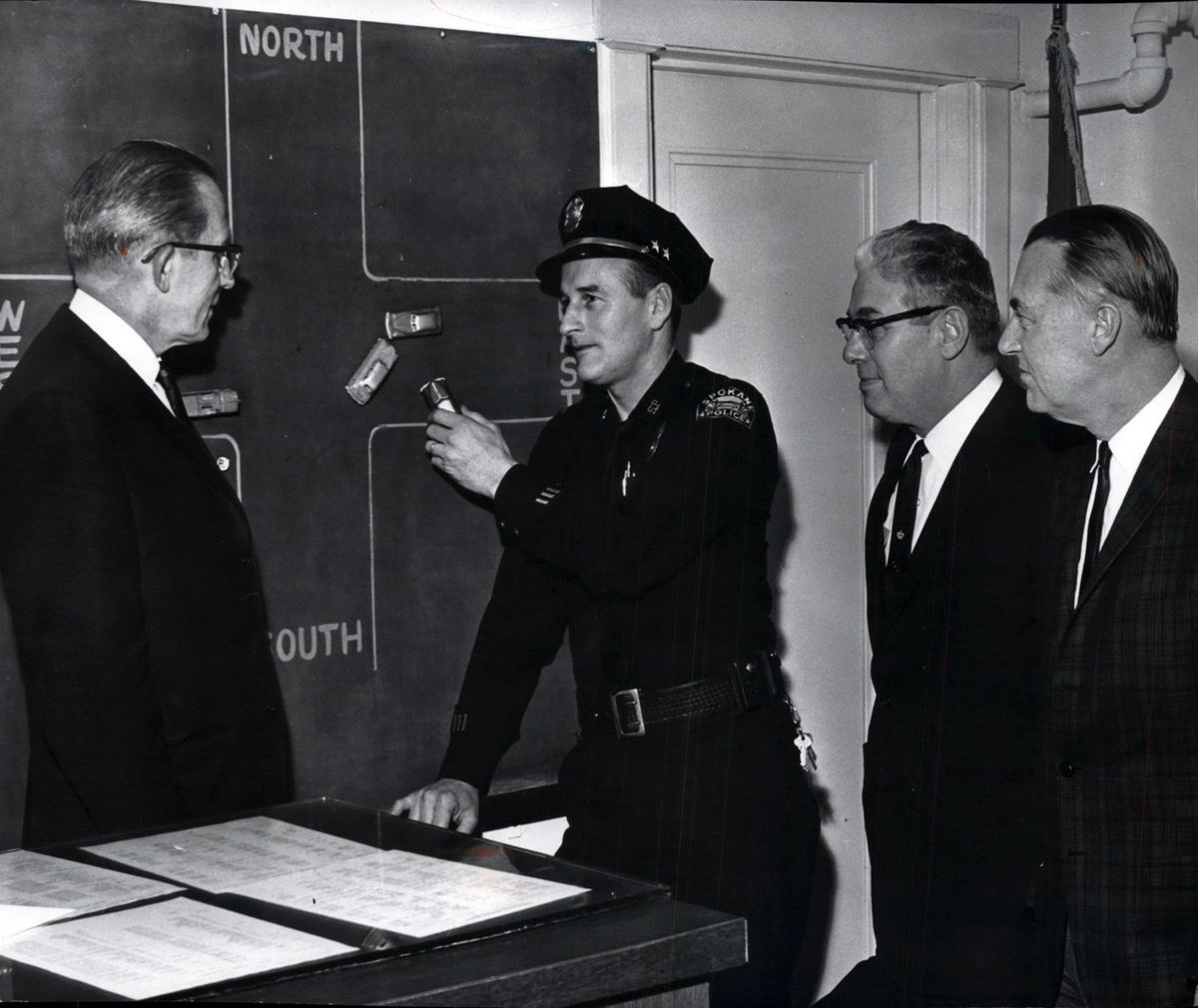Wayne Hendren, Spokane police chief who modernized force, dies at 89

Former Spokane police Chief Wayne Hendren, who led the department for 10 years and oversaw efforts to modernize policing and improve professionalism, died Monday at age 89 after a long illness.
Hendren was born and raised in Spokane and served 30 years in the department after graduating from Rogers High School. His tenure as chief from 1970 to 1980 included the six-month Expo ’74. Department veterans said he was liked and respected by his officers, the city officials he worked with and the community.
“He was well-respected by the troops because he made good decisions,” said Sgt. Tony Giannetto, who started working as a Spokane police officer in 1980, shortly before Hendren retired. “People knew he would hold them accountable. They could go in and talk to him.”
Former Spokane police officer and retired Pend Oreille County Sheriff Tony Bamonte said Hendren worked hard to stamp out corruption, even in small doses. He put an end to officers getting free cigarettes and other handouts.
“He’s the best police chief Spokane’s ever had,” he said. “If he said something, his word was good. He was just as honest as they come.”
After Hendren took over as chief, the police department moved from the Realty Building on Riverside Avenue to its current home in the Public Safety Building, the first step in working more closely with the Spokane County Sheriff’s Office.
Former Chief Robert Panther, who succeeded Hendren, remembered the rangemaster loading ammunition by hand, one bullet at a time, at an old department training facility. Under Hendren, the department opened a modern facility with an automatic loading machine. It became a home for training officers from other departments in Eastern Washington.
“The whole thing was a question of keeping up with the times and modernizing,” Panther said.
In 1967, Hendren attended the FBI National Academy as deputy chief. Before his appointment as chief, he had also worked with patrol, traffic, records, detective and administrative units. Hendren was elected president of the Washington Association of Sheriffs and Police Chiefs in 1974, and was named to a statewide committee on city and county jail standards the same year.
His passion for law enforcement inspired his son and grandson to serve Spokane on the force. Hendren’s son, Jerry, worked as a deputy for the Spokane County Sheriff’s Office, and his grandson, Thomas Hendren, is currently a Spokane police lieutenant.
Lt. Hendren said seeing his grandfather’s dedication to policing inspired him to join the force.
“Every time he talked about his experience as a police officer, it was always positive,” he said. “He absolutely loved it, and I think he was born to do it.”
Hendren didn’t like to brag about his accomplishments and deflected praise to his officers. In a Spokesman-Review editorial published a few days before his retirement, he said, “We’ve had a good community from which to select personnel. They grew up with our kind of thinking. They’re not the kind who serve because it’s macho. They come on because they want to serve the community.”
He also said he was proud of having run a “good, clean department.”
Hendren retired at 54, saying he wanted to golf and spend more time with his family. His wife of 69 years, Shirley, said he played golf nearly every day and spent the winter doing woodworking projects, making bookcases and dressers for his family. The couple raised three children who still live in Spokane.
“He was proud of being the chief and he was an excellent chief. The men really liked him. Even after he retired, you didn’t hear many that didn’t,” she said.
After his retirement, Hendren stayed involved in the law enforcement community. He attended funerals for fallen officers and met with new police chiefs to talk about Spokane.
“He absolutely loved Spokane. He believed that somebody from Spokane should be the leader of that department,” Lt. Hendren said.
Giannetto said Hendren always remembered his name even though they only shook hands once right after Giannetto joined the force.
“He remembers the officers that worked with him and under him. That’s what always impressed me,” Giannetto said.